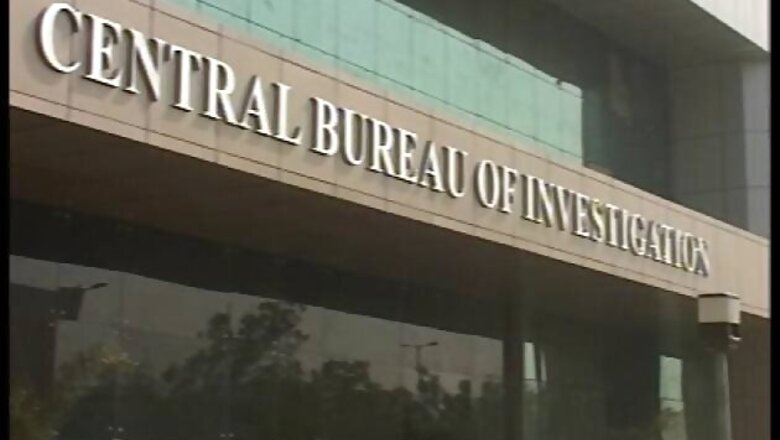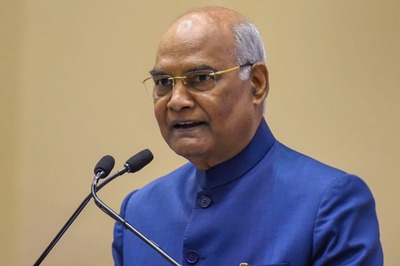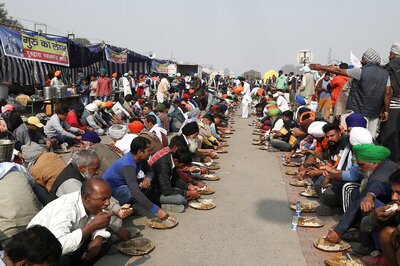
views
New Delhi: CBI wants to stop disclosing details of allegations of corruption against its own officials under the RTI Act--an information being provided by it at present under the transparency law.
The agency will challenge before the Delhi High Court an order of the Central Information Commission directing the agency to disclose information about its officials Vivek Dutt and Rajesh Karnatak who are facing allegations of corruption.
RTI activist Subhash Agrawal had sought to know to details of allegations against these officers who were part of CBI's probe in coal scam and were arrested by the agency while allegedly taking bribe to favour a businessman using their influence.
"This is to inform you that CBI is going to file an appeal before the Delhi High Court against the order of CIC," DIG Arun Bothra said in a communication to Agrawal.
CBI, a central investigating agency, was exempted from transparency law by the UPA government which was facing serious allegations of corruption probed by the agency.
The UPA government had brought it under Section 24 of the RTI Act which lists security and intelligence agencies exempted from provisions of the RTI Act.
The section, however, makes it clear that such exemption from RTI Act shall not be applicable if any material sought by an information seeker and held by a public authority pertains to "allegations" of corruption.
CBI had said that the agency was exempted from making disclosures under the RTI Act. Rejecting the arguments of CBI, Chief Information Commissioner Rajiv Mathur held that section 24 of the RTI Act has exempted certain organisations from the purview of the RTI Act including CBI.
"However, information pertaining to allegations of corruption and humar rights violations have been excluded," Mathur had said in his order.
The Chief Information Commissioner said Agrawal's contention that he was seeking information relating to corruption within the organisation has merit and the responses provided by DIG, CBI, AC-III, on June 26, 2013 is "misplaced and erroneous" interpretation of Section 24.
CBI has been giving details of allegations of corruption against its officials to Department of Personnel and Training for placing them in Parliament.
"So far, CBI had been arguing that such information could be provided only in cases of corruption and human rights violation concerning only within the exempted organisations like CBI despite final order of a division bench of the Madras High Court. But now CBI has decided to challenge the CIC verdict even in case of information relating to corruption within itself," Agrawal said.
According to the RTI Act, any information which cannot be denied to Parliament cannot be withheld from an RTI applicant as well.
Earlier also in a detailed order, former Chief Information Commissioner Satyananda Mishra had clarified that wording of exemption clause saying it casts an obligation on the CPIO of the exempted organisation to entertain all requests of information pertaining to allegations of corruption or human rights violations.
"It does not make any distinction between the exempted organisations on the basis of the functions they perform nor between allegations of corruption on the basis of whether it is made against the employees of the exempted organisations or against others," he had said.
He had underlined that exemption given to CBI under section 24 of the RTI is a "qualified exemption". "There is no escape from the fact that CBI will have to consider all RTI requests for information which pertains to any allegations of corruption and human rights violation irrespective or the individual against whom such allegations are made," he had said.




















Comments
0 comment